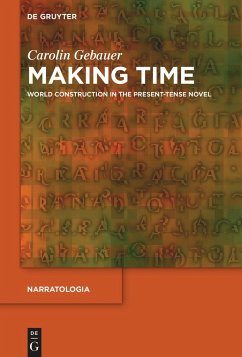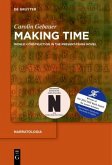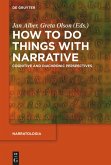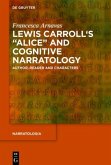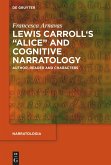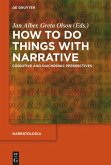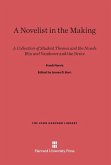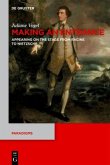2023 Perkins Prize of the International Society for the Study of Narrative
ESSE Book Award for Junior Scholars for a book in the field of Literatures in the English Language
Responding to the current surge in present-tense novels, Making Time is an innovative contribution to narratological research on present-tense usage in narrative fiction. Breaking with the tradition of conceptualizing the present tense purely as a deictic category denoting synchronicity between a narrative event and its presentation, the study redefines present-tense narration as a fully-fledged narrative strategy whose functional potential far exceeds temporal relations between story and discourse. The first part of the volume presents numerous analytical categories that systematically describe the formal, structural, functional, and syntactic dimensions of present-tense usage in narrative fiction. These categories are then deployed to investigate the uses and functions of present-tensenarration in selected twenty-first century novels, including Hilary Mantel's Wolf Hall, Margaret Atwood's Oryx and Crake, Ian McEwan's Nutshell, and Irvine Welsh's Skagboys. The seven case studies serve to illustrate the ubiquity of present-tense narration in contemporary fiction, ranging from the historical novel to the thriller, and to investigate the various ways in which the present tense contributes to narrative worldmaking.
ESSE Book Award for Junior Scholars for a book in the field of Literatures in the English Language
Responding to the current surge in present-tense novels, Making Time is an innovative contribution to narratological research on present-tense usage in narrative fiction. Breaking with the tradition of conceptualizing the present tense purely as a deictic category denoting synchronicity between a narrative event and its presentation, the study redefines present-tense narration as a fully-fledged narrative strategy whose functional potential far exceeds temporal relations between story and discourse. The first part of the volume presents numerous analytical categories that systematically describe the formal, structural, functional, and syntactic dimensions of present-tense usage in narrative fiction. These categories are then deployed to investigate the uses and functions of present-tensenarration in selected twenty-first century novels, including Hilary Mantel's Wolf Hall, Margaret Atwood's Oryx and Crake, Ian McEwan's Nutshell, and Irvine Welsh's Skagboys. The seven case studies serve to illustrate the ubiquity of present-tense narration in contemporary fiction, ranging from the historical novel to the thriller, and to investigate the various ways in which the present tense contributes to narrative worldmaking.

